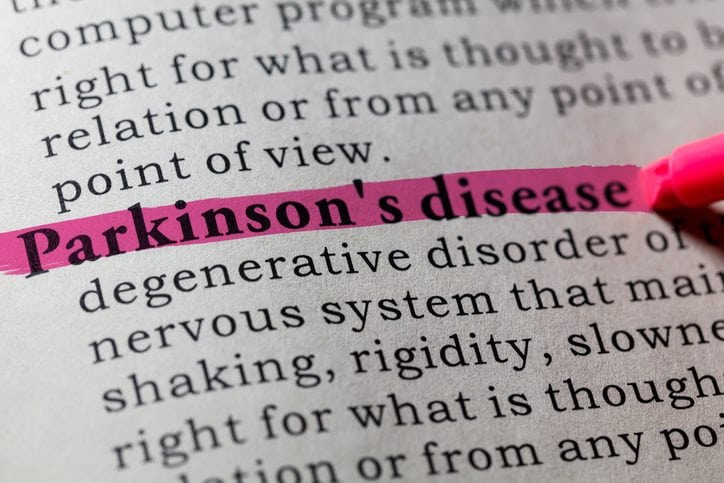<< Back
Parkinson’s: Where Behavioral Health and Neurology Intersect

October 10, 2019
By Kate Carey-Trull
Chances are, you know someone with Parkinson’s disease. One person is diagnosed every 10 minutes, with about 60,000 Americans diagnosed with the chronic, progressive neurological and degenerative disorder each year.
Dr. J. Antonelle de Marcaida, medical director of the Hartford HealthCare Ayer Neuroscience Institute Chase Family Movement Disorders Center, said Parkinson’s, most commonly seen in older adults, is not usually hereditary. The disease is gradual and prolonged — it does not shorten life expectancy.
Parkinson’s is more than just a motor disorder. Non-motor symptoms can be more devastating and pre-date the onset of classic symptoms by years. Early motor symptoms can include slowness of movement and tremors. Non-motor symptoms can include:
- Sleep problems such as sleep apnea, insomnia
- Olfactory symptoms — loss of sense of smell
- Mood disorders — depression, anxiety
- Autonomic symptoms, such as constipation or bladder disorders.
As the disease progresses, the connection between neurology and psychiatry becomes more pronounced. Motor symptoms include issues with balance, rigidity of the limbs, falls and dizziness. Non-motor symptoms can include dementia, hallucinations, delusions, anxiety and depression.
“There is a lot of optimism in the field,” Dr. DeMarcaida said. “It can be a devastating diagnosis, but research is progressing.”
The effects of the disease are due to the loss of dopamine and nerve cells that produce dopamine.
Treatment includes dopamine replacement therapeutic strategies, but the often don’t work as well after about three years of treatment, Dr. DeMarcaida said, and motor complications can develop over time. She discussed how finding the optimal dose can be difficult — some patients may have problems when doses wear off or don’t work in a timely fashion.
Symptoms patients may struggle when the medication isn’t working or wears off, with sweating, panic attacks, shortness of breath, stomach aches and mental slowness — feeling as if it’s harder to think or process thoughts. These can all be signs that the dopamine in their system is wearing off.
Dr. de Marcaida said there are about 26 medications for Parkinson’s. Some enhance or mimic dopamine, so there can a be spectrum of treatment.
“We often use polytherapy rather than monotherapy,” she said. “We use other therapies to prolong the levodopa and keep people functioning better.”
She said the goal is for people to be able to do their normal activities, such as working, gardening or household tasks. Also, if medications aren’t working properly, people may socially isolate themselves, which can lead to depression and anxiety.
One of the issues can be side effects with dopamine agonists, which stimulate the dopamine receptors but can have adverse side effects, such as impulse control issues with gambling, shopping, compulsive eating or sexual desires. There also can be issues with hallucinations and delusions.
“Parkinson’s disease psychosis is common and under-recognized,” Dr. de Marcaida said.
These can include seeing small animals or family members, but can progress and patients can start acting aggressively, becoming more of a burden on caregivers.
“They tell me they are seeing a kitten on the bed, and I warn them it can become a tiger,” Dr. de Marcaida said. “Adjusting medications is a balancing act.”
Delusions can include jealousy, suspicions of spousal infidelity and feeling persecuted. Medications can be adjusted, she said, but doctors need to be aware it is not just a side effect of the medication — it can be a progression of the disease. The loss of serotonin in the brain, which enhances receptor binding, can cause visual hallucinations, she said.
For more information on treatment for Parkinson’s treatment at the Hartford HealthCare Ayer Neuroscience Institute Chase Family Movement Disorders Center, click here.